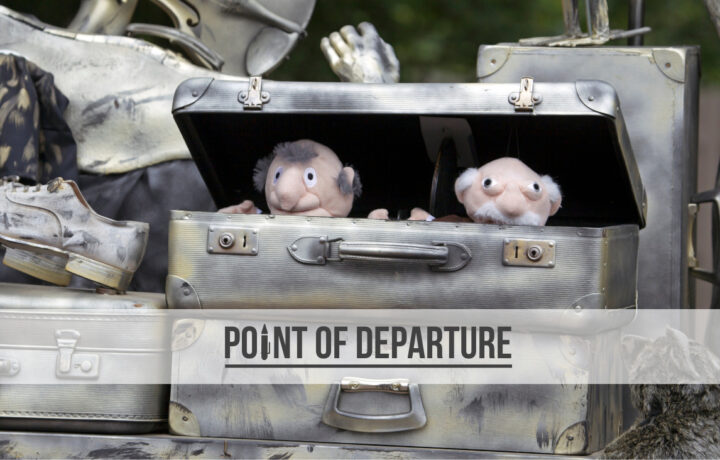“We who think we are about to die will laugh at anything.” – Terry Pratchett
In the 10 years since retiring from the U.S. Army, I’ve settled well into Career 2.0. I found my purpose, refocused my professional energy, and pursued my passion each and every day. Surrounding myself with people a third my age has challenged me in ways that I never thought possible. I have a renewed drive and determination that I haven’t felt in years.
Finding my tribe proved more elusive. I had more than my share of work colleagues, people that made the days both interesting and fun. There was the usual banter, a high level of camaraderie, and a genuine affection for one another. But after nearly 30 years in uniform, my tribe was well-defined. As much as I enjoyed spending time with them, they weren’t really my tribe.
Then, about a year ago, I moved into a new office across the hall from Dan, an especially cantankerous, septuagenarian Navy veteran. It wasn’t that he was grumpy – although I might have tossed that label at him a time or two – it was that he didn’t suffer fools well. If he thought someone was mailing it in, he didn’t hide his disdain. If he heard someone whining, he was likely to offer them a tissue. Okay, maybe he was a little grumpy.
Tales from the Dark Side
I’d found my tribe. Even if it was only one person. And what really brought us together was something that binds many veterans: gallows humor.
Traditionally referred to as black comedy, gallows humor is a form of comedy that makes light of sensitive topics that are typically considered taboo. In a 2021 Patient article, Emily Bashforth notes that dark humor draws from these topics – which are usually quite serious – as a coping mechanism. “At times when we are engaging in dark humor, it’s often because we are having an overwhelming experience of the more negative or challenging emotions, such as grief, sadness, and anxiety.”
Writing about gallows humor in the American Journal of Sociology in 1942, Antonin Obrdlik crystallized that thought: “The positive effect of gallows humor is manifested in the strengthening of morale. Its negative effect is revealed in its influence upon the dis- integration of those toward whom it is directed.” Which is why someone unaccustomed to the darkness of gallows humor typically reacts “in abject horror to the insensitive and heartless nature” of it.
My journey to the dark side began when I was a firefighter during my college years. In the moment, human trauma is treated professionally and seriously, with an absolute focus on the task at hand. But the cumulative exposure to that trauma takes a toll; you either learn to compartmentalize it or it consumes you. Gallows humor became our coping mechanism.
In the military – as in other professions where exposure to human trauma is often commonplace – dark humor quickly became the coping mechanism of choice. It doesn’t dull the emotions, it funnels them. We still feel everything, we just cope with it differently. The dark humor that emerges from shared trauma forges our bonds, eases our pain, and keeps us sane.
Grumpy Old Men
It might have been a mistake to put two old veterans so close to one another. We made the same annoyed facial expressions, said the same inappropriate things, and spoke our minds freely. If he saw me with someone in my office, he would usually flip me the bird. If he caught me drinking a latte, the personal insults would cut deep. At one point, one of the other faculty referred to us as “Statler and Waldorf,” the two ancient hecklers who threw insults down from the balcony on The Muppet Show.
We began our days with a cup of coffee, usually trading insults or trash talking whoever dared darken our doorways. We never talked about what we’d seen or experienced. That’s not what old veterans do. We instead bantered back and forth like John Gustafson and Max Goldman (Jack Lemmon and Walter Mattheu in the 1993 film, Grumpy Old Men). If we weren’t screwing with each other, it wasn’t a normal day.
A little over a week ago, Dan died. We both knew it was coming, but we didn’t talk about it. That’s not how it works. There was a silent acknowledgment between us, a brief moment of mutual affection and appreciation. The next morning, I made a cup of coffee using his French roast blend; it was awful. I leaned back in my chair and said across the space between our doors, “Dan, your coffee tastes like ass.”
Somewhere, I know he was laughing.




